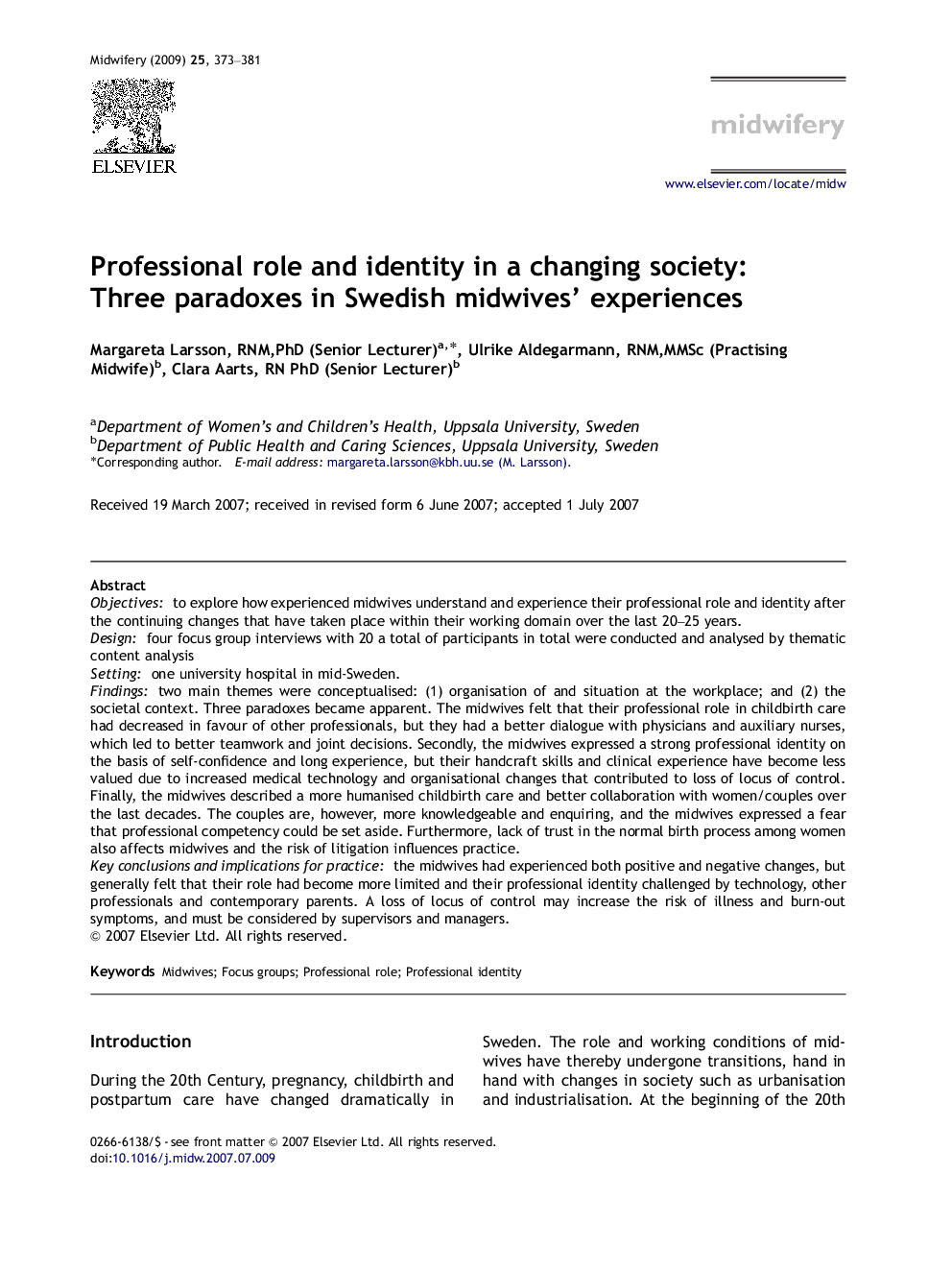| Article ID | Journal | Published Year | Pages | File Type |
|---|---|---|---|---|
| 1084788 | Midwifery | 2009 | 9 Pages |
Objectivesto explore how experienced midwives understand and experience their professional role and identity after the continuing changes that have taken place within their working domain over the last 20–25 years.Designfour focus group interviews with 20 a total of participants in total were conducted and analysed by thematic content analysisSettingone university hospital in mid-Sweden.Findingstwo main themes were conceptualised: (1) organisation of and situation at the workplace; and (2) the societal context. Three paradoxes became apparent. The midwives felt that their professional role in childbirth care had decreased in favour of other professionals, but they had a better dialogue with physicians and auxiliary nurses, which led to better teamwork and joint decisions. Secondly, the midwives expressed a strong professional identity on the basis of self-confidence and long experience, but their handcraft skills and clinical experience have become less valued due to increased medical technology and organisational changes that contributed to loss of locus of control. Finally, the midwives described a more humanised childbirth care and better collaboration with women/couples over the last decades. The couples are, however, more knowledgeable and enquiring, and the midwives expressed a fear that professional competency could be set aside. Furthermore, lack of trust in the normal birth process among women also affects midwives and the risk of litigation influences practice.Key conclusions and implications for practicethe midwives had experienced both positive and negative changes, but generally felt that their role had become more limited and their professional identity challenged by technology, other professionals and contemporary parents. A loss of locus of control may increase the risk of illness and burn-out symptoms, and must be considered by supervisors and managers.
